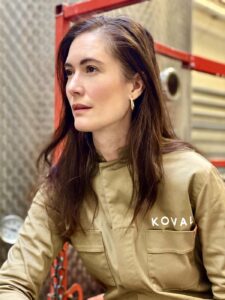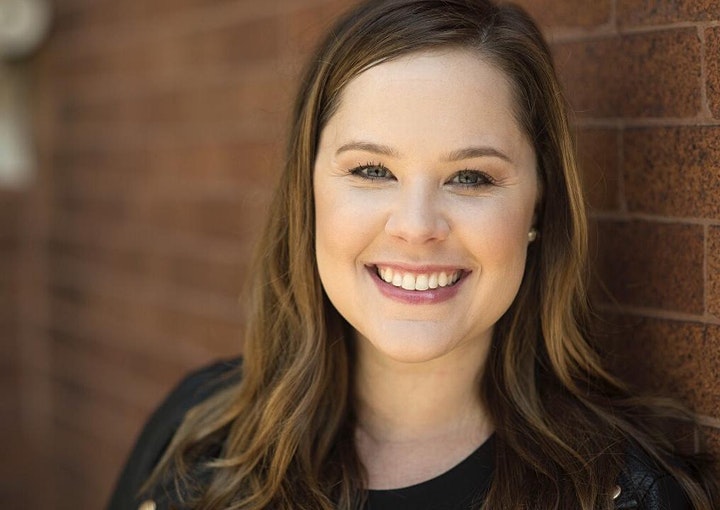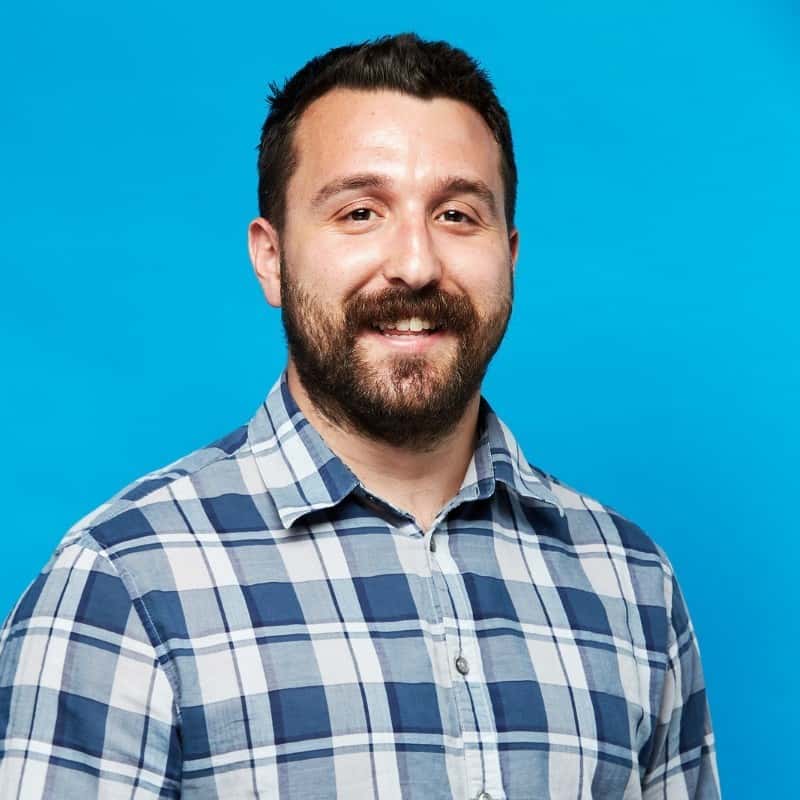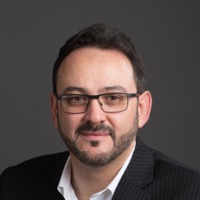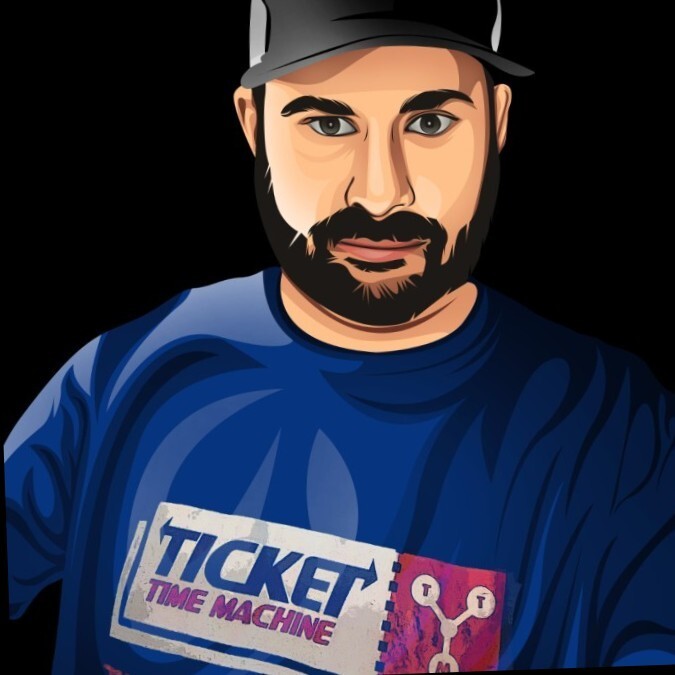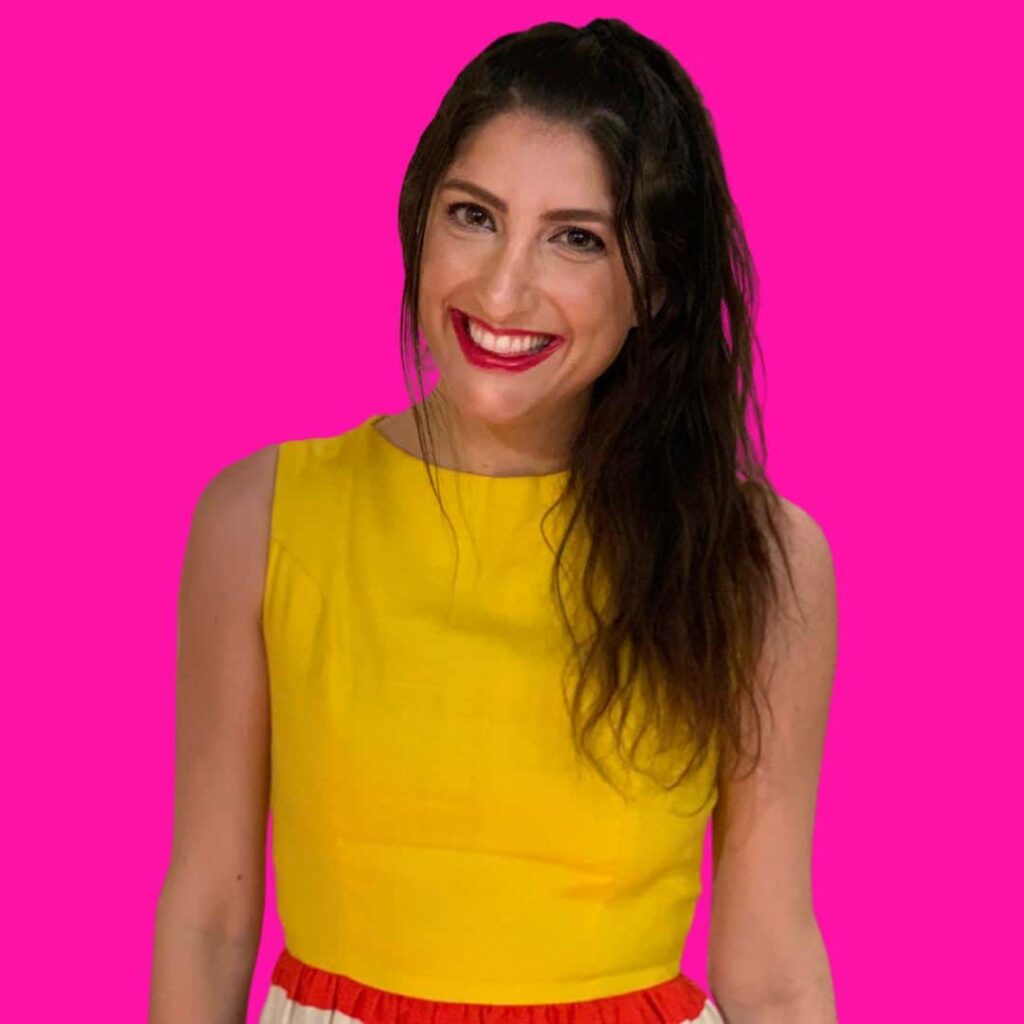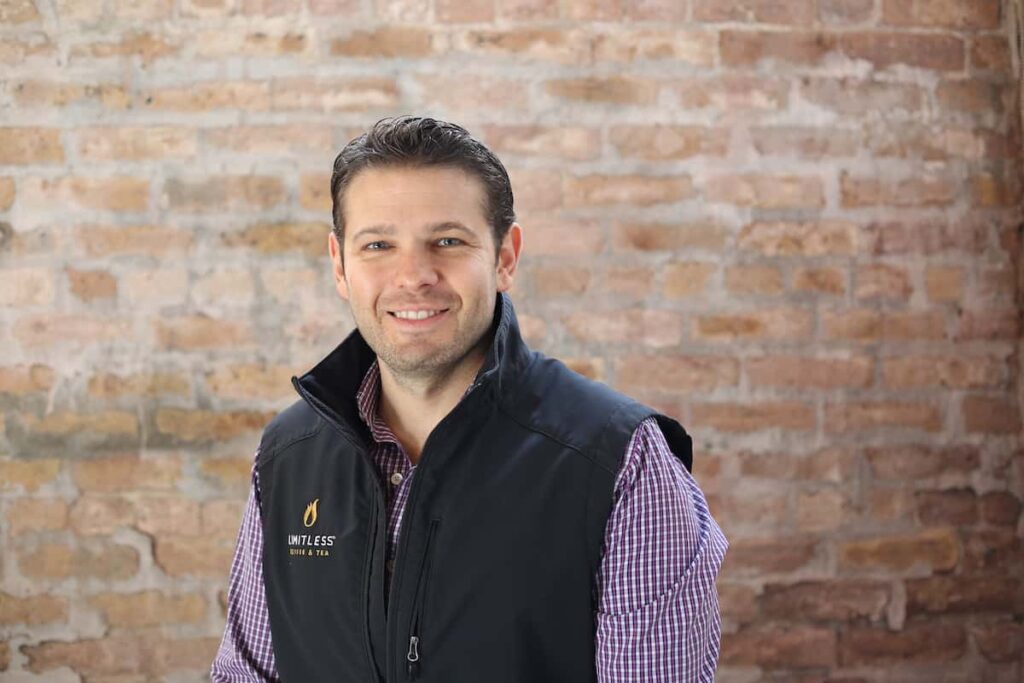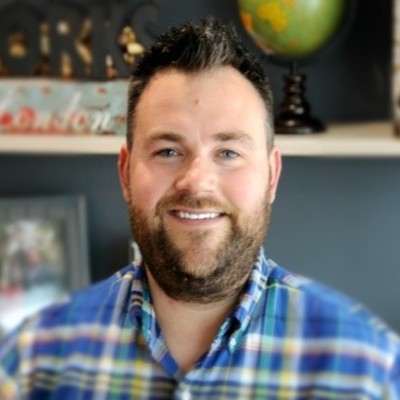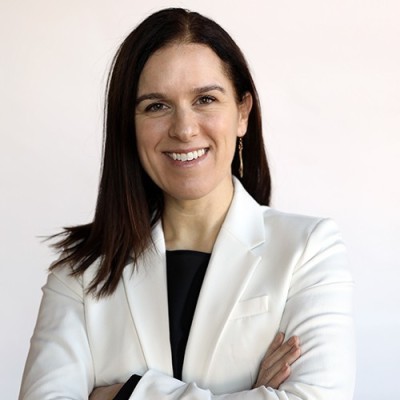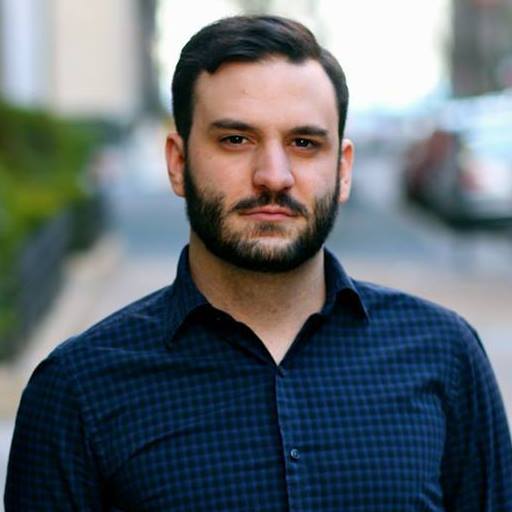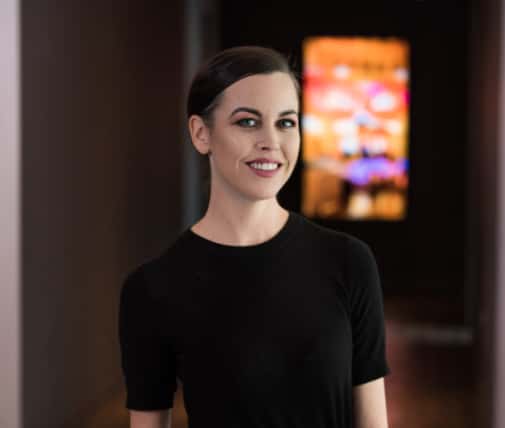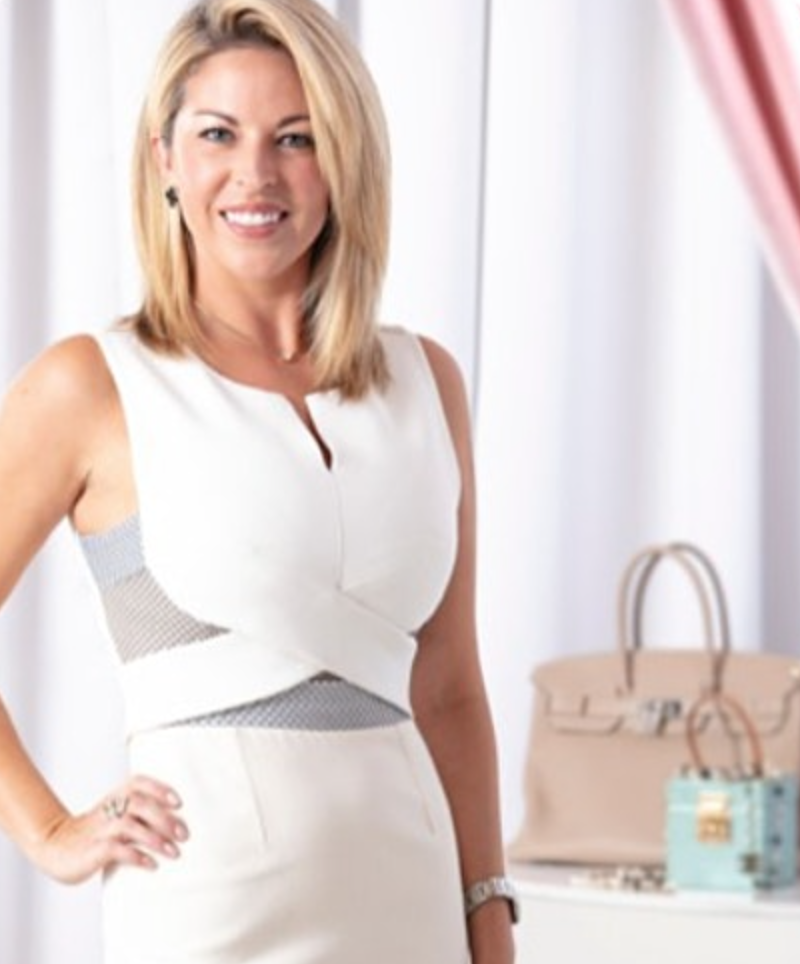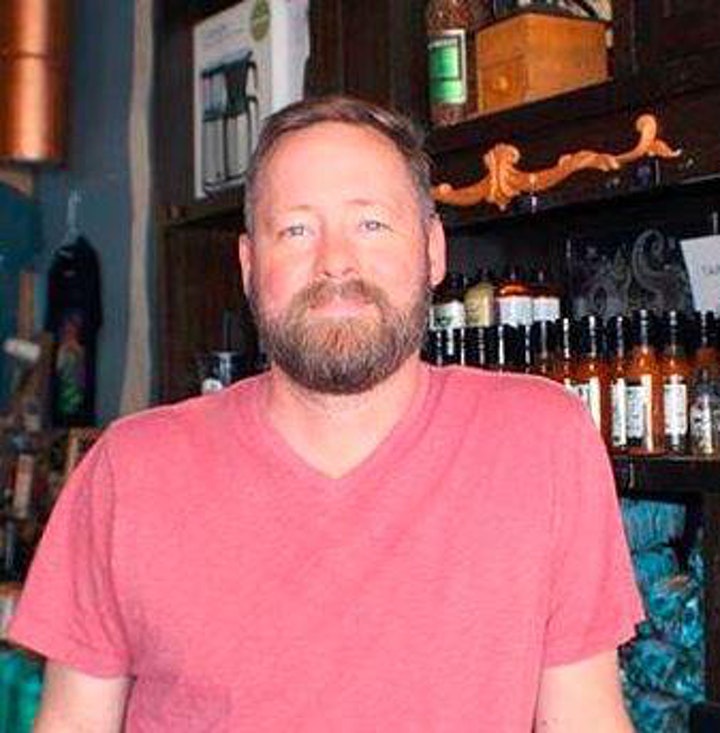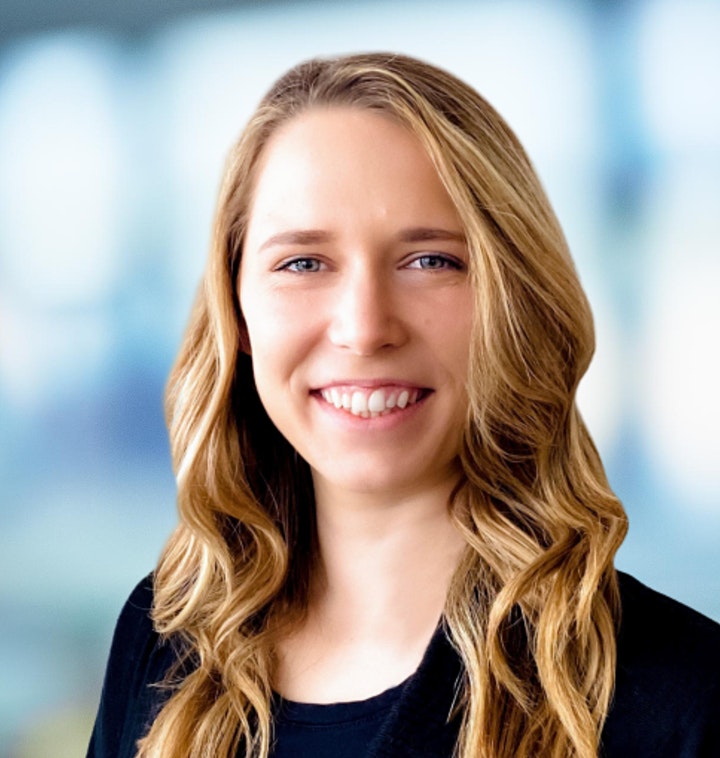Read The Transcript
*Please note that transcription may not be exactly 1:1 to what was stated in the video.
Building Koval Distillery with Dr. Sonat Birnecker Hart | VisualFizz Growth Series
Dan (00:25): So, really appreciate you hopping on Dr. Sonat. Oh my gosh, Sonat, you have to tell me your… Dr. Sonat Birnecker Hart. We really appreciate you coming on to The Visual Fiscal Growth series. Generally speaking, we do host these in person but unfortunately, we’re still kind of thankful towards the end of this long awaited period. But we’re really excited to have you here. If you’re from Chicago or not, you’ve probably heard of Koval.
(01:40): I have to start with a really quick story about Koval first, before I even begin this whole thing and I think I haven’t told you this story once before when we first met. I was in Scotland with my fiancé and obviously they’re known for their scotch. And I go to this bartender and this huge scotch focused bar. And I’m like, get me something that’s really unique and interesting. Something that I would really like because we’re in Scotland. And he’s like, we have a great new product. We’re doing it in partnership with this cool company out of the United States. I was like, okay, fine, whatever. He’s like, yes, it’s in Chicago. It’s called Koval. We’re using the Koval barrels and I was like, I live two miles from Koval.
(02:25): Can you provide me with something? I was like, this is so close to home. I mean, it’s Scotland, and yet they know who you are and they’re using your guys’ barrels and I was like, this is such a cool thing. Because without even trying, I mean I’ve kind of been intercepted by Koval and it’s so great because you have this international presence, which I’m a huge fan of. So, that’s my kind of intro to how big Koval has gotten over the years. But I’d love for you to introduce yourself as well.
Dr. Hart (02:55): Sure. Thank you so much, Dan. I really appreciate it. I mean, it’s fun when you travel around and you see what you make and that’s something that I’ve experienced as well and it never ceases to amaze me when I go somewhere and I see it on a back bar, whether it’s in Italy or Japan. But basically, Koval started with my husband and I deciding that we wanted a lifestyle change. I was pregnant with my first child and we were living in the DC area. I was a professor. My husband was the deputy press secretary of the Austrian embassy, but we decided that we wanted our family to be in a city that we really loved.
(03:40): We liked the idea of working together. We liked the idea of having our children close at hand while working, and really that requires your own business, being an entrepreneur. Because then you get to make the rules. And we wanted to do it in Chicago, which I love and I’m obsessed with as a city. I think it’s a fabulous place to live and have a family. And I always wanted to come back to Chicago, even though I lived in many places around the world. And since I didn’t have any Ruby slippers to get me back whiskey was the solution. So, we decided that…
Dan (04:19): Wait, wait, I’ll stop you there. We have so much more storytelling we’re going to get there. I told you, we just need a little intro and you gave us so much information, but we’re going to get there. Don’t worry. I know it’s exciting. I did too. And Marissa, my co-founder, actually stops me because I get right into it. She’s like, wait, we’ve got to introduce ourselves and I’m so bad about this. So, I see people coming in guys, thanks for coming and joining us here. But we’re just going to start even earlier on. Sonat, you give us so much good information, but let’s start earlier on. I want to know a little bit more about your early life. As a child, I don’t think your goal was to start a liquor company. So, maybe speak to us a little bit about your childhood and kind of your upbringing.
Dr. Hart (05:12): My upbringing… I mean, I was very blessed to have had an awesome childhood. My parents and my siblings were my best friends and we spent a lot of time together and that was just… I mean, when I went to college, I found that that was actually sort of unique and strange, but I feel very blessed to have had that. And that certainly provided me with a lot of strength, I think for anything that I wanted to do, knowing that I had such a strong support network between my brother and my sister and my parents. But when I was a kid, I wanted to be a doctor, but I thought of becoming a medical doctor. Ended up being a doctor of German cultural history. So, it was a little off, but I did get the doctorate. And I feel as if life in general has many chapters and so, as long as one lives fully in each chapter, one can change on a dime. So, I’ve changed on a dime many times.
Dan (06:21): That’s good and I think having that flexibility is important and I’m assuming kind of what you mentioned, I’m pretty close with my family as well and I think it’s really important, but I assume that having that kind of ability to do so has really been helpful throughout your time growing up as just being able to stay fluid in your process. And even though you want it to be kind of a medical doctor and you switched to something slightly different, I don’t think that from your end was ever an issue because you did what you’re passionate about. And I’m sure your family was probably also completely behind it. Is that the case?
Dr. Hart (06:53): Oh, absolutely. They were very supportive. They want me to do whatever I want to do. So, that was very freeing. I think there are a lot of kids that grow up that feel as if they’re being sort of pigeon-holed into doing something in particular, into something that they think their parents want them to do or things that they think they should do. But I was lucky. I was able to really pursue what I was passionate about and also what I was good at. So, that was sort of what led me.
Dan (07:25): Great. And then, we’ve gone through a little bit of our childhood. And so, what was college like for you?
Dr. Hart (07:32): College was a lot of fun. I went to Earlham College for undergraduate, and then I went to University of London for my master’s and PhD. And then I went to Oxford for post-doc. So, a lot of very different experiences but I feel that having seen what university life is like both in the US and abroad, I think that American students have a lot of flexibility in ways that European students do not. Whereas we were able to sort of explore and liberal arts education, figure out what we like best, what we’re good at and that was really wonderful for me.
(08:16): Because as I said, I started out thinking I wanted to be a medical doctor and doing pre-med classes and I was like, I actually don’t. I think I’d rather do literature. So, I shifted that, and that really led me through all of my education, pursuing literature and cultural history as something I loved. But it was with regard to university or college, there was a lot of trying to expand my horizons and use the time to learn new things and do things that I would not normally gravitate towards just because I felt that they were important to have done at least once. So, I played a varsity sport, which I had never really been interested in. I was more of the Jane Austin tea kind of person, but then I played varsity field hockey for three years in college or actually, I think I played it all four years, but yes. And then I wanted a different kind of experience for my graduate school. So, instead of staying in the US, I decided to go to England.
Dan (09:24): That’s great. And I was about to ask you, it is. Yes, absolutely. I’ve done some, not the same, but studying abroad and it is very different. And I think, would you say the traveling component was part of it or more so the education?
Dr. Hart (09:41): Both. I thought it’d be really interesting to study in a different system, in a different country. And so, just having that experience in itself, I thought was very exciting for me. And the travel component certainly didn’t hurt. I mean, it was great, but I spend most of my time in libraries. So, I was very nerdy when it came to how I approached my graduate school. Looking back, I was like, gosh, I should have gone out more.
Dan (10:15): I know. I think most of us think that. It’s one of the others, right? No one’s like, I’ve gone out the right amount. It’s either I’ve gone out too much or too little. And so, after college, what were the next steps from your end? I mean, you’ve been in the UK for a while, you’ve studied in the US. Did you want to stay abroad or were you planning on coming back to the United States?
Dr. Hart (10:39): I mean, I was open but I was abroad for about 10 years. I wanted to come back to the US and I took a position as a professor and I taught in the US for a while and then I went and taught at Humboldt University in Berlin for a number of years, which was a lot of fun and a really great opportunity. I got to the chair department and that experience, I think I felt almost that I reached everything I wanted to do when I came to academia. I was able to teach, I was the Walter Benjamin chair of German Jewish cultural history at Humboldt University in Berlin and I got to teach everything with original sources. I got to teach in German. It was a really wonderful experience. And for my field, it wasn’t going to ever get better than that. So, I felt really free in the sense that I loved academia and I loved teaching, but I was open to doing something different when the idea came about. And that’s sort of when my husband and I decided that we wanted to move to the city that we loved and work together and change our careers. And I think we were both at a point where we were at peace with changing our careers.
Dan (12:05): Sure. And that’s a great transition. We’ve jumped right in. Sonat, your transitions are really good here. And so, academia, alcohol. Sometimes they go hand in hand. What’s the story behind? I mean, let’s go to just the beginning. The idea stage. I mean, was it called Koval? Like how did that start as an idea even?
Dr. Hart (12:37): Well, we were trying to think about what we would do for a family business in the Chicago land area. And we were sitting around with my family and my father used to get tons and tons of publishers clearing house magazines at the time. And so, one of them was Time Magazine, and there was an article in it about some gentleman in upstate New York that started a whiskey company called Titletown. And they said, the article sort of talked about how there might be a craft distilling wave similar to what there was with beer, but it hadn’t really started yet. It was sort of just getting going and they were talking about sort of how this might be the next thing or the new trend. And we were reading it and talking about it. And my sister’s like, well, you could do that.
(13:33): I mean, my husband, we’d talked sort of about different things that we might be able to do and distilling sort of came up because my husband grew up distilling and he comes from three generations of distillers in Austria. His grandfather has an award-winning cider company and they also make brandies and also liqueurs. And so, he’d been doing this as chores his whole life, and he went and got a PhD in politics and economics. Didn’t think he’d be doing distilling, but after we started talking about it, it seemed like it would be a really exciting thing to do for a number of reasons. Not least because there hadn’t been a distillery in Chicago since the mid 18 hundreds. So, there was sort of a challenge there and also sort of seemed like it needed to happen.
(14:25): And in addition to that, it afforded us the ability to work together and to build something of high quality, manufacture something. It felt very American to do this. At a time in which there seemed to be less and less manufacturing going on, it seemed part of a revival to do more manufacturing and make something from scratch using ingredients found in the Midwest. And so, it was exciting on a lot of levels. It seemed romantic and fun, and also allowed us to use a lot of the knowledge that he had gained growing up. And there wasn’t a lot of knowledge, let’s just say, in the United States at the time when it came to the craft distilling movement, which provided us with another opportunity. Because we had the knowledge and we had a lot of experience behind us, but not just knowledge and experience of the distilling process, but also the equipment. We were able to simultaneously, in addition to building a liquor company manufacturing alcohol, we were also able to start a consulting company and teach others how to do it. And also we started representing a number of the manufacturers in Europe who make equipment for distilling, such as…
Dan (15:54): I was going to say, if you move slightly to the left a little bit, we’ll be able to see those lovely… Wow. I mean, those are intense machines. And I’ll ask you about those later.
Dr. Hart (16:06): So, we saw it as like there was a lot of opportunity and it was exciting and there were also a lot of challenges. Many. But it seemed like something that we were willing to give a go to. And so, instead of buying a home, we’d save some money as our down payment. But instead of buying that home, we ended up investing in this stuff and moved in with my family, my parents, and into my brother’s old bedroom with our brand new baby and started Koval and invested everything into the company. And then also everything from our other company, our consulting company, into growing the brand and the company. And we went from just being us to now being probably one of the larger…
Dan (16:58): Oh, we’ll ask this question soon. Don’t worry. We’ll get there. I have more questions. We’re going to go through the whole growth of the business. I have so many questions. Trust me. We’re going to get there. I liked the progression of, and learning some of the challenges too that you faced. I think that’s really interesting because one of the items that is really important to understand here is that it’s, like you said, it’s very romantic to come up with this idea and be like, oh my gosh, we’re going to do this. We have some knowledge on it but there’s 10,000 steps and doors and other things you have to get through to get to where you guys are now, which we’re going to get to. And I want to hear that first. Obviously, you had to move it back when you were with your parents and probably a space that was like a couple hundred square feet, because it’s now a baby and you and your husband. I mean, what were the challenges faced early on to even come up with this concept to build this brand?
Dr. Hart (17:55): Well, I would say one of the largest challenges was the fact that the laws had not been changed in Illinois since 1934, when it came to alcohol production. Which meant that they needed to be changed because they were not providing a very robust business environment for a craft distillery. So, they needed to be changed to make it possible to do a few things that were truly necessary in my opinion, such as retailing onsite, doing tours, tastings, none of that was legal. You could make alcohol, but you couldn’t have any contact with a consumer or a fan or somebody interested in, well, how do you make this? Could I have a taste? No, you can’t because it wasn’t legal when we started.
(18:45): So, I also had to figure out how to change the laws, which was in itself a really interesting process. As they say, and I’m sure this is particularly true for Illinois, there are two things you don’t ever want to see how they’re made, it’s sausage and legislation. And so, it was a fun process figuring out how to do it. And you realize there are a lot of players in the industry that have different agendas. And so, that was a real education in itself and provided me with a lot of understanding of the industry in general, from more of a legal perspective.
(19:34): So, that had to happen and luckily it did happen. So, I got the laws changed. We created the first…
Dan (19:40): How long did that take?
Dr. Hart (19:40): It took me about nine months. Maybe it was a little bit less than a year, which I think is actually very fast. But I was really lucky to have an amazing Senator and house rep behind me. So, Heather Steans and Greg Harris, both amazing and they really helped shepherd it along. So, we were lucky. Also I had the support of my alderman, Gene Shelter, at the time who is really incredible in making it possible really in the beginning to even have this business in Chicago. So, having strong political advocates is always important in the liquor industry.
Dan (20:25): Oh yes. And it’s interesting. I mean, it makes sense because obviously, there’s quite a bit of money in liquor and you can hire quite a few people for your local community. And you bring back a good point from earlier, which is back, I believe, in the twenties and thirties, they said, I believe it was like one third of all things were made in Chicago. It’s like one third of all things in the United States were made in Chicago, even beyond the United States. And at this point, very little is made in the US as a whole and in Chicago obviously included.
(20:58): And so, you bring it back to just we have to make a change and actually do something to bring back manufacturing and distilling as a manufacturing of liquor. It’s a similar concept. And now we’ve gotten a few other brands that probably have utilized what you’ve taken. I mean, there’s quite a few manufacturing companies coming back to Chicago and the south side and west side, etc. So, it’s interesting and I’m wondering if they’ve learned from what you’ve done and kind of reutilized that for what they’re doing now.
Dr. Hart (21:29): Do you mean like other liquor companies?
Dan (21:32): Not just liquor, but I think in general. Just bringing back manufacturing, which it took a long time for us to do. And I think people are finally starting to do that.
Dr. Hart (21:41): Well, I feel like the craft movement in general, whether it’s like alcoholic beverages or coffee or chocolate candy, I mean, all of these things that are produced sort of on a more craft scale artisan type scale. I think that yes, that has been a very big revival, whether it’s like kombucha or this or that. And people are manufacturing things of that kind certainly more in the US than they were before. So, that’s very exciting. I think that we did see, however, during the pandemic that there needs to be a lot more produced locally. The fact that so many distilleries that focus on making whiskey or gin or other beverages for consumption needed to really shift their entire production such as Koval did, to making hand sanitizer, because it wasn’t available anywhere else shows that our supply chains can very easily be strained. And that’s dangerous.
Dan (22:54): You keep on pushing forward. I was going to get there. And she’s always one step ahead of me just like during the movement right here. I was going to get there, but you beat me to it. We’re going to get there too. Don’t worry. So, at this point you’ve changed the laws, which okay, no big deal, right? Let’s go change some Illinois laws. Easy peasy. So, you’ve changed the laws, now you’ve probably saved up a little bit by living at home. What’s the next step?
Dr. Hart (23:25): Well, I mean, we’ve continued and we actually still do invest everything back into the company. We still don’t own a home, so we’re still investing everything back. But what we did is anytime we were able to get bigger equipment, better equipment, equipment that had more automation possibilities, we would continue to upgrade everything. And we grew from just being me and my husband and one child in the pack and playing, and me and my husband and two children, no longer in the packing place. And almost 40 team members and now 55 export markets in addition to national distribution in the US and pretty much national distribution across all of Canada as well. So, it’s been very exciting. There’s been a lot of growth and development over time, and we’re just constantly focusing on improving and in doing that, that helps us grow.
Dan (24:29): Yeah. And obviously being a consumer, I’ve seen quite a few different types of products on the shelf here. Would you want to talk through what was the first thing that you’ve… I believe you mentioned whiskey was the first, or am I wrong? Was it gin?
Dr. Hart (24:46): It was actually brandy. It’s sort of a funny story. So, we originally were thinking of making brandy because that’s one of the products that Robert grew up making his whole childhood, helping his grandfather make brandy. But as with licenses, you never quite know when it’s going to arrive. And this is before everything was even super digital. I mean, there wasn’t Google maps when we started. I remember we would drive places and you’d have to print it out, the directions. So, in the same vein, there were not a lot of you who couldn’t just get your license emailed to you. And so,, we had no clue when we were going to get it in the mail and you weren’t allowed to start distilling until you received your license. And so, we were waiting for all of it. And when we finally received it, it was a little bit later than we had thought.
(25:48): So, we thought that we’d be able to start distilling in August. It ended up being October and with that, the weather was getting a little bit colder. And we wanted to start with brandy’s just as sort of an homage to Robert’s grandfather, from whom he learned to distill. And also we thought it’d be fun to make a pure brandy and it was very difficult to source pears that late locally. A lot of them had already sold to brokers who were selling to the retail stores. And so, I had to then order them from further afield, so to speak. So, they were coming from Washington state and the trick about that was, we were hoping that they would not freeze in transit. Because when it freezes in transit and you are going to mash it, you have to mash it all immediately. And that means if you have seven tons of pears coming to you, that means you have to mash seven tons of pears immediately. Like non stop working, don’t stop until you’re done.
(27:03): So, we were hoping that they wouldn’t freeze. Of course they did freeze. We went through mashing all of those pears, and it was like really 24 hours a day for like two days. It was an intense experience. And of course you can’t just mash them up and start the fermentation process. You have to, at least the way we do it, obviously everything that might’ve been a bruise that happened in transport had to be cut off because it could create a problem in the mash. We took off all the stems because we did not want the stems affecting the flavor. So, it was a lot of work. And after that, we didn’t want to risk getting fruit from far away.
(27:51): So, we said, you know what? Let’s just focus on grain. And actually it was a real blessing because brandy is not super popular in America. I love it. It’s a wonderful spirit. In fact, we have a pear brandy coming out soon. Yes, this year. But we do them now just for fun. It’s not something that we decided we wanted to focus on. So, really that first kind of not a mistake, but that first scramble or pivot became incredibly important for the direction of the company going forward, because then we focused on grains and whiskey. So, it was interesting how it worked out.
Dan (28:33): Yes. But it worked out. It seems like it worked out well because whiskey had a resurgence too. I mean, whiskey has always been popular, but with the growth of the old fashioned and the whiskey bars and speakeasies, which really that was what maybe 10 years give or take, maybe plus or minus four or five years. There was, I think, a huge growth in the craft whiskey space where you could have only gotten a certain set of brands at most grocery stores, or most liquor stores. And now, if you go to the whiskey section of a grocery store, it’s like three different sections and it’s massive. And so, that’s awesome. I mean, and you know what? Those mistakes are sometimes the best ones that can happen to you.
Dr. Hart (29:20): For sure. Absolutely. I mean, in a way, there’s no mistakes, it’s really just part of your journey. And how are you going to react to it and what are you going to learn from it? And we learned a lot and it pushed us in the right direction.
Dan (29:36): That’s great. So, you had the whiskey and how long did you stay with this or did you continue putting out different skews, different types of whiskeys? How did that work?
Dr. Hart (29:48): Yes. In the beginning, we also had a learning experience. We took a very academic approach, which isn’t a very marketable one.
(30:00): And the academic approach was that we thought it would be really interesting to show people the differences in a whiskey when it’s sort of almost new or aged very little so that you could really just taste like white whiskey so that you could taste what it tastes like. Not in the sense that the barrel really didn’t have a lot of time to change the nature of it. So, that’s what it tasted like when aged in a toasted barrel and then what it tasted like in a charred barrel, sort of a medium sort of close to an alligator char barrel. Because they all are very different. And then we decided that we would do that with an oat, a wheat and a spelt and a millet. And then we would also have a bourbon. And then we had four grains. And at some point we had like, I don’t know… We had too many whiskeys. And we had more whiskeys than Levi’s had jeans and almost as many as Starbucks had versions of coffee.
(01:11): So, it was a problem because what ended up happening was it was a really interesting exercise and where you could go and you could taste a white rye and then a rye that’s in a toasted barrel and then a rye aged in a charred barrel and see all the differences. But when it came to having this in some sort of marketable way, what would end up happening was, as they would enter out into the world, one store might love a toasted millet. And another one would say, oh, I really like the white millet. And another one would say, oh, I like the charred millet. And then other ones would only carry the rye or other ones would only carry the oat. And so, for a consumer, somebody looking for their product that they like, it was near impossible to find it because there was so much diversification, there were too many products and everyone was choosing just the one that they wanted on their shelves, as opposed to having sort of a sales strategy.
(32:17): So, we didn’t come at it at first with a very appropriate sales strategy. We just came at it with a wouldn’t this be cool to have available kind of strategy which we soon learned just doesn’t work. So, that’s something that’s great for the distillery itself. When people come to the distillery, there’s so many options and people are able to try many different things on site, but when it comes to pushing things out into the market, it’s important to focus, which we learned luckily relatively early on.
Dan (32:54): Yes. And it seems like obviously, there’s the concept of, well, one segmenting kind of your options to a point where there’s too many. And then also providing people with too many options is also not always a great thing. And that’s something we continue to learn and we always say like less is more when it comes to pricing strategy or options or anything that you provide to people. It’s like, give them three, don’t give them ten, give them three. And I’m a big advocate of these first restaurants. You go to a Cheesecake Factory or something and you’re like, I can’t eat any of this. It’s like 600 pages. Or you go to an establishment that has three appetizers, four entrees, two desserts, and a drink menu. And you’re like, okay, this is easy. For at least most people. If you can’t eat those, then I’m sorry. But generally, I prefer to give myself less because I’ll be looking at the menu for 45 minutes.
Dr. Hart (33:44): Exactly.
Dan (33:47): No, that’s good. And it’s good to learn that quickly. And I think you bring up a good point because people when they go to your distillery, they want the experience. They want to try different things and they’re generally either there for two reasons. They’re advocates for your brand or they’re there for a learning experience. And I think that’s the nice thing is that you can differentiate what you’re offering by doing that. It creates that secondary experience outside of what they already know, which is probably more of your standardized lines that go out to groceries or liquor stores.
Dr. Hart (34:21): For sure. For sure. So, I mean, it works out, but it was in the beginning we just were acting a little too academic about It.
Dan (34:29): Well, you wanted to give people an experience, but that makes sense because I’m assuming you also learned about how retail works at that point, right?
Dr. Hart (34:40): We were learning a lot, yes.
Dan (34:42): Which is not an easy place at all. I mean, it’s like cutthroat and crazy. Maybe you want to talk a little bit about the retail space for you guys.
Dr. Hart (34:49): Well, when we started we were learning a lot about retail, but also just in general about the liquor industry and it’s an industry that’s really tricky because it is a small, independent brand it can be very hard to compete. Because the ways in which this business functioned, I would say, before craft got involved before smaller producers that did not have money, let’s say for a lot of marketing or at least traditional marketing. It was done with a lot of money and so, what does that mean? I mean, we would find out that just to get into certain places, costs money.
(35:41): This was funny because when we started, we were right next to a brewery, Metropolitan Brewing Company. They’re also in Chicago and we were both discovering these things at the same time. Where we would compare notes and there were a lot of places that would have the idea that they could get stuff for free or request it or think that… And it’s not actually legal, but there was this sort of pressure by a lot of different places, I would say it’s gotten a little bit better over time. But we were learning this, we were trying to do everything we could to be running a regular business and following all the regulations and laws. And then we would do something and hear something, and it was just really shocking.
(36:48): I remember going into a bar to introduce my brand and the bar owner said, oh, I would really love to carry your stuff, but I can’t because this other brand just bought my patio and I don’t want to lose the trip they’re going to give me to some place. And I would hear this a lot. And all of a sudden, I was like, what is going on here? Because I read all the laws. I became very informed on what one could do and what one could not do, but then I kept running up against all sorts of stuff going on that really just did not seem appropriate. But at the end of the day, if you stick to just doing things the way you want to do them, that is appropriate and just avoid all of the noise that is going on. That might be the way other people have done things in the past. We found the path that worked for us, which was really finding those that really truly wanted to work with us. And it wasn’t just about trying to get some things.
Dan (38:05): Through vacation.
Dr. Hart (38:07): Yes. And I’m sure that that’s true for many different industries. I mean, it’s something that I know probably happens a lot in different businesses, but I think that at the end of the day, one can have integrity and do things. And if you do things at really high quality and you spend all of your time and early days when people would be like, sure, we’ll carry you, but we need this much for free or something like that. I mean, I was working like crazy. I was nursing a baby. I was trying to mash and distill and figure out deals with distributors. And I was like, you know what? No. Nobody’s getting anything for free. I’m sorry, but that’s really not the way to go about it.
(39:02): And I think that the industry’s grown as more craft brands have entered into it and so many of them are independent, small brands that really every dollar counts. It’s also changed the nature of the industry and there’s more of a demand for crafters. Before, when you were one of the first craft brands it was hard getting through. But now it’s a whole other world.
Dan (39:33): Yes. That’s crazy. And you’re absolutely right. I think a lot of individuals don’t value the people, the time and effort. And we have as well in our business, where you have multiple calls, you get a proposal, we talk through the proposal, we’re waiting for a month, there’s no response. And my co-founder probably, who’s on this call here, knows that I’m a loud mouth about it. Because I don’t agree with how people act and I’m a fair loser if we lose, because another brand is better, bigger, faster, cheaper, whatever. Sure. But from my end, the big thing is acknowledge our existence and that we put the time into it.
(40:17): And I’d say this is our rate. This is how much time we put into it. Basically you’ve cost our business X thousands of dollars because we can’t focus on other clients. And so, I’m completely there with you. It might be a bad move from a PR standpoint to talk against that at the end of the day, but it’s our integrity, it’s our time and it’s basically stealing from small businesses when you just want, in our world, a proposal for no accountability. And in your world, if you want a free product and you really don’t intend to use it, or down the road maybe you will one day. So, I’m completely in agreement on that end. We did get a chat request and I’m going to actually ask, there’s going to be just an FYI for everyone.
(41:00): We’re going to do Q and A’s very soon. So, feel free to throw some in right now and we’ll probably do some Q and A’s very soon. We have a few more minutes to just chat here and the one thing I want to chat through, because I know Koval has been kind of an integral part of the growth of distillers in Chicago and elsewhere. So, you’ve mentioned obviously with COVID-19, you guys made a really great shift. I want to briefly talk about that because I’m over talking about COVID, but I think you guys did something really great. I don’t know if it was to survive or to help, and I think that will be really interesting.
(41:37): So, that’s my first question. And then part B of that question is what does the future of Koval look like? What does it look like now that we’re at the, knock on wood somewhere, that we’re at the hump of this thing, and we’re looking forward and people are ready to spend a lot of money again and buy things and go out? So, if you can just answer me with those couple of items, I’d be really excited to hear.
Dr. Hart (41:59): Yes. Sure. When it came to our decision to pivot and make hand sanitizer, we would have survived the pandemic, one way or another. But the issue was, how are you going to survive the pandemic? And for us, shifting allowed us to keep a lot more of our team in place throughout the entire pandemic. Whereas had we not done that, I think that it would have been a lot more difficult to keep people on staff. But the reason why we did it was because we really wanted to help and we saw it coming. Because we have an international presence, we were very aware of what was going on in Europe, which is one of our most important trading partners outside of the United States. And we were seeing that some distilleries in Europe had started shifting to making hand sanitizer for their populations because it became necessary.
(43:12): So, we’d already had the plan to do this and had been lobbying the government, as well as speaking with local officials about the possibility. I would say that when we started doing this, it was actually illegal to make that pivot. You cannot make anything aside from alcohol for consumption, if that is what your license is for. So, essentially making alcohol for hand sanitizer was not a legal option at the time. So, we had to wait to get federal approval, but because we were putting everything in place in advance, the minute we got the federal approval, which came in on a Thursday night at six o’clock I got the email. That Monday morning, we were making our first deliveries of free hand sanitizer to members of the local community, the medical community, and those who were first responders.
(44:14): But the idea was that we would just do that a little bit, like for a few batches, and then we would go back to making some sort of alcohol for consumption. But we ended up only making hand sanitizer for about five months. And we donated over 5,000 gallons to the local community. We donated to pretty much all the hospitals in the Chicago land area, even some Wisconsin and some in Indiana. We worked with and we could not have done this without the help from so many people all over the city of Chicago. I mean, we were working in concert with a huge network of individuals who helped us with these donations. Who either helped us monetarily buy more supplies for this such as Adelson, PC, it’s a law firm. Beyond Chicago, it’s a nonprofit organization. We worked with Heartland Alliance. We worked with so many different organizations to help get the product out to those who needed it.
(45:30): We also worked with a huge group of logistics organizations that helped us. Whether it was Med Speed, which is a medical logistics company that delivered all the hand sanitizer for free to the hospitals and first responders, ambulance companies, nursing homes. But even the Chicago Board of Tourism through Chicago, sent drivers and cars to pick it up and drop it off where needed. And so, really the city turned around to just start helping each other. We were overwhelmed with so much support from the other brewing community in Chicago.
(46:15): So, the brewers all came together, whether it was small breweries, such as Metropolitan or Dovetail, or all the breweries on Malt Row where Koval is located in Chicago, came together and donated their beer for us to distill and turn into hand sanitizer. But also all the way up to Evanston with Temperance and also breweries all the way to the south side of Chicago, were donating their beer. Even distributors of beer came and brought tankers of beer for us to distill. Goose Island, even Bud Light we distilled. So, it was really incredible and heartwarming. And I would say that everybody at Koval was giving 250% every day. I would have team meetings at 2:30 in the morning often, just to make sure we were getting things out and done. We had to really change everything we did into a different kind of organization.
(47:18): So, we sold some to a business. We did business to business sales, but then anybody that was on the front lines nursing homes, hospitals, we donated it. Those with food insecurity and organizations that help those with food insecurities, we gave it to them. It was intense. It was really an amazing and incredible experience. And so, once we were in it, we were like in it. And there was no way to do anything else because the need was just so outstandingly present in our minds. I mean, we would get calls from the heads of nursing homes crying because they had ordered lots of hand sanitizer and their order had been apparently diverted and weren’t going to get it. And so, it was really amazing to be able to be a part of it and to really help out when the city needed it. So, it was an incredible experience. It was just an incredible experience.
Dan (48:33): Sure. That restores my faith in humanity just a little bit. It’s nice to see so many companies coming in and assisting, and then obviously, you guys being kind of at the forefront of it. So, that’s great. I mean, that is amazing and I’m sure you’re happy that you don’t have to do that anymore and go back to your passion. But it’s great that you got into that early and were able to kind of pivot and help so many people. I mean, it’s really cool. Too bad we couldn’t help in some capacity. I didn’t even know. I mean, I knew you guys did the hand sanitizer, but we only have so many people that can drive around. But that sounds really cool. Next time, if you need anything, let us know.
Dr. Hart (49:18): Okay. I will.
Dan (49:18): We’re happy to do it. And then I know we’re a little over here in terms of the QA, but I did want to ask really quickly my last question then pushed over to some of the questions. What’s the future for you guys? What does it look like for you guys, then for yourself personally?
Dr. Hart (49:33): Yes, well, finally, we’re able to get to what we were hoping to do just as the pandemic got started, which is to open our visitor center, our new store, which is at our main production facility. Tours at the main production facility, also a bar with a patio which we’d wanted to open for a long time, but then as the pandemic hit, it was impossible. And we had started construction on it and that all stopped really during the pandemic. So, we were really happy to be able to get back to that and so, I would say for Koval for the immediate future, it’s getting all of that open. In fact, this weekend we are going to be opening our store for the first time for actual people to walk in.
(50:24): I mean, we were doing curbside really just until this weekend. It was completely contactless, whereas now, no serious contact, but people will be able to come into the store with a mask on and be able to sort of see a little bit more of the experience and the visitor experience and be able to take tours and sign up for tours and also events and classes in person, which is great. And then the bar we hope to open at some point, maybe mid-summer at least outside. I don’t know if we’re going to open the indoor portion of the bar yet. Probably just for private events or at least we’re going to ease in slowly. So, that’s the immediate thing for Koval and I’m going along with all of this. I mean, that’s what I do. So, I don’t really see anything different on the horizon for me right now than making sure that we’re increasing distribution and increasing the spread of distribution and all of that. And obviously, making sure that my boys are doing their homework and…
Dan (51:42): That’s another full-time job for sure. So, you seem like you have plenty of free time right now. You could probably take on another project right? No, that sounds amazing. Let us know when the patio opens, we’ll reserve a table.
Dr. Hart (51:57): I love it.
Dan (51:57): And definitely we are up for that. We have a lot of clients that we have to meet up with at this point. We haven’t seen anyone in like a year and a half, so set a table for us.
Dr. Hart (52:09): There you go. Tasting all around.
Dan (52:09): Yes, let’s do it. We’ll do the whole tasting. If you do the sampler that you mentioned earlier that didn’t work so well in retail, I’m all for it. That sounds really cool.
Dr. Hart (52:19): We’re going to be doing lots in samplers.
Dan (52:22): Yes. Good. I’ll make sure to get a designated driver for that then.
Dr. Hart (52:26): Perfect.
Dan (52:28): Awesome. I’m going to hop into a couple of questions here. We’re kind of going to go rapid fire a little bit, so let’s keep the answers maybe like a minute long, so I can get a few in.
Dr. Hart (52:38): Sure.
Dan (52:38): I’d say, okay, here’s one. What’s been your favorite part of running Koval?
Dr. Hart (52:42): Working with family. Not only do I get to work with my husband, who has very different skills which I admire and we work very well together. We trust each other’s ability to deal with different sides of the company and listen to each other’s advice and it’s been a really wonderful, rewarding experience. But I also work with my sister who is our designer. Designs all of our labels, so she has her own design firm called Dander Projects in New York and so, I get to work with my sister. My mom has also been involved in doing things. She did our core labels and she’s an artist. And so, that’s been really a lot of fun. And while my father was still alive, he would come to the distillery and put boxes together and talk about being a boxer.
Dan (53:34): That’s nice.
Dr. Hart (53:34): So, I mean, it’s been great in that sense. I would say being able to work with family has been my favorite part and had my family close at hand. As said before, being at Koval, I’ve been able to be a mom while working. So, I can have my kids with me when they are really little. I could nurse on demand and that’s not usual.
Dan (53:59): No, it’s great. I think that goes back to what you said right in the beginning about being so close knit with your family. That was one of my goals too, it is like obviously, starting a business young. My first business I launched was at age 20. And so, really start that young so that in the future I can really focus on free time and travel and family. So, I am a big advocate of that as well. Let’s see, I think… Okay, this one’s good. What’s some advice that you would give others starting out their own brand? And let’s do part A part B. First one is their own brand, their own business. And part B is like something within a similar space. So, like the liquor space or maybe somewhere it’s just a little bit more difficult.
Dr. Hart (54:45): Beverage?
Dan (54:45): Yes. Beverage space or food and bev, or just like a slightly more difficult space to be in.
Dr. Hart (54:51): Absolutely. Well, if it’s something along the lines of liquor, which is a regulated controlled substance, so to speak. And I would imagine there are a lot of entrepreneurs interested in CBD and that space. I would say one thing that’s really important for these kinds of businesses is reading the laws. Understanding what you are allowed to do and what you are not allowed to do is incredibly important. And you can keep from making very costly mistakes by just doing that simple thing. It’s just doing your homework and understanding the business framework. I can give you an example.
(55:33): In the brewing world, there was somebody that started a brewery, probably did not read the laws very carefully, and they were allowed to brew and sell, but they weren’t allowed to have a taproom. And their whole business model was based on being able to also have a taproom. And so, they ended up having to close because that was a big disconnect. And so, just making sure that the business framework and the laws are going to work for you and going to work for you where you want to do it. Because the different laws, particularly in a regulated business, can also be different state to state.
(56:12): So, what’s allowed in Illinois might not be allowed in Indiana, but it might be allowed and might be even more free in Missouri. You won’t know until you read up on it and take that into consideration. So, I would say, doing your homework is always the single most important thing. I believe that it’s best to do it yourself as opposed to outsource it. There are plenty of lawyers that would be very happy to learn about these things for $500 an hour, but a lot of these things are important for you to know. And there’s a place for lawyers, but I think that when it comes to the initial research, that’s something you have to do yourself and own it and know it and then you will be in a good place to start it.
Dan (57:01): I agree. I totally agree. And I assume the do your homework aspect was both the mom and the professor in you right?
Dr. Hart (57:11): Yes.
Dan (57:11): One last question. I think it’s important. I think when we first chatted, I learned this but I forgot. The name, where did it come from? What’s the backstory?
Dr. Hart (57:21): I don’t know if that’s a short answer. Well, it also has to do with family. We were visiting my great Uncle Sigmund in Brooklyn, who was in his late nineties when we were about to start the business. And so, we knew that we probably wouldn’t be seeing him again if we liked it. We had a brand new baby, moved to another state, started a business, and got back to Brooklyn to see him. We didn’t know when that would happen. And so, we spent a whole day with him and we were talking about starting our business and he was telling us stories. And one of them was about how the fact that we were doing this reminded him of my great grandfather, whose name was Emmanuel, but he had the nickname Monic. But then apparently, he also got the nickname Koval, which is something that I learned from Sigmund, my great uncle during that visit.
(58:09): And we said, well, why did he get the nickname Koval? And he said, well, Koval in many Eastern European languages means shimmied, which is the German for it, which is also then translated into Smith or blacksmith. And it means somebody who’s like a blacksmith and you have the Covanta, Kovacik, it’s a very common Eastern European last name. That being said, in Yiddish, it has a little extra meaning. And it means somebody who, like a blacksmith, forges something new or forges ahead.
(58:45): And we were like, Ooh, I like that. That could be good. And we thought that that was a really appropriate name for our company because we were trying to do something new and forge ahead. Emmanuel was given that as a nickname in part, because he left Vienna when he was very young to move to Chicago to start a battery company, and people thought that he was a little crazy because they were like, why would you leave Vienna? It’s the center of the universe. But he’s like, Europe’s over. It’s all about America. I’m so excited to come to Chicago to do this and he did it.
(59:24): So, they gave him this nickname. But what was also neat about it was Robert learned how to distill from his grandfather whose last name is Shmied, which is Koval in German. So, it allowed us to sort of honor both sides of the family, both these grandparents. And in addition to that, there’s a followup story to it. When we entered this factory, the one here, which was really large and we weren’t sure if we could handle the move, was expensive and bigger than we thought we could handle at the time. And we were walking through trying to decide if we can make this big leap. And there was only one thing in the building, and it was actually a battery charger from Emmanuel’s company that he left Vienna to start in Chicago.
(01:00:25): And that company hadn’t existed since the 1970s, late seventies. And it sort of seemed like a sign. It was sort of shared. And so, we said, okay. We’re going to be here. And actually, I asked our landlord at the time, I was like, well, if we rent the space, can I buy this battery charger? And he’s like, oh, you could have it. The last tenants just left it here and we didn’t clear it out yet. So, I was like, oh my gosh, it was amazing. And it actually worked and we charged our forklifts with it.
Dan (01:00:57): Well, that is one heck of a story. Oh my gosh. Very cool. No, I love it. This was so great. I really appreciate the time here and I’m so excited because I think we have to do something else, like a blog article or something beyond that. I think the stories are very cool and I really appreciate your time here, Sonat. All that was very, very interesting. I think I’ve listened to the story twice and I got so much more out of it the second time too. It was just great. So, as next steps, the VisualFizz team, let us know when that outdoor patio is open and ready for us.
Dr. Hart (01:01:35): For sure.
Dan (01:01:35): We will be there with cups in hand, ready for you. Beyond that, I really appreciate this opportunity for anybody else listening, either live or via YouTube or other channels feel free to reach out to us. And if you have any questions, we could reach out to Sonat as well, or we’ll figure out a way to make that happen. But obviously, we really appreciate all the other entrepreneurs that come onto the VisualFizz Growth series. It’s always such a pleasure to have a lovely rest of your day and week. And I’ll be in touch with my team here for next steps and everything. So, I’m really excited.
Dr. Hart (01:02:13): Love it.
Dan (01:02:13): Thank you so much.
Dr. Hart (01:02:18): Can’t wait to see you at the distillery and such a pleasure. Thank you for having me on your show.
Dan (01:02:20): Yes. Thank you. Have a good one. Have a good evening.
Dr. Hart (01:02:24): You too.


